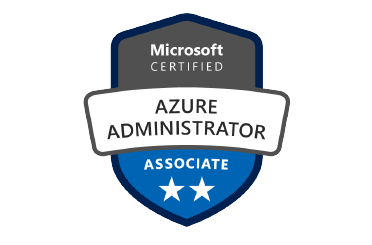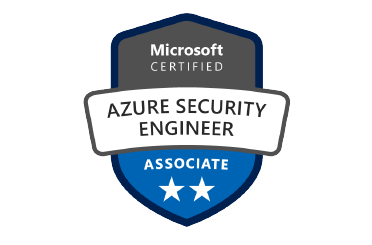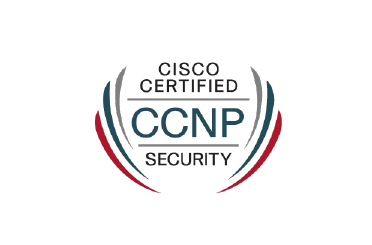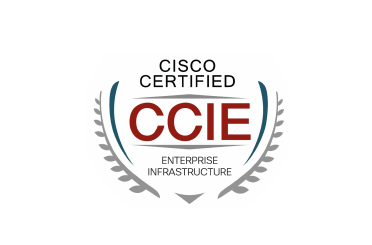F5 BIG-IP Administrator
f5 BIG-IP Local Traffic Manager (LTM) provides intelligent traffic management for rapid application deployment, optimization, load-balancing, and offloading. BIG-IP Local Traffic Manager (LTM) ensures to entail a deep understanding of the network’s application traffic and control over and how it should be handled. It is designed to modify and transform the chaotic volume of network traffic into logically assembled streams of data. It then makes intelligent traffic management decisions thereby, selecting the right destination based on server performance, security, and availability. These courses give network professionals a functional understanding of BIG-IP Local Traffic Manager (LTM) introducing students to both commonly used and advanced LTM features.
f5 BIG-IP Administrator Certification includes;
All Courses Idea
Course Objectives:
SETTING UP THE BIG-IP SYSTEM
- Initially Setting Up the BIG-IP System
- Archiving the BIG-IP Configuration
- Leveraging F5 Support Resources and Tools
REVIEWING LOCAL TRAFFIC CONFIGURATION
- Reviewing Nodes, Pools, and Virtual Servers
- Reviewing Address Translation
- Reviewing Routing Assumptions
- Reviewing Application Health Monitoring
- Reviewing Traffic Behavior Modification with Profiles
- Reviewing the TMOS Shell (TMSH)
- Reviewing Managing BIG-IP Configuration Data
LOAD BALANCING TRAFFIC WITH LTM
- Exploring Load Balancing Options
- Using Priority Group Activation and Fallback Host
- Comparing Member and Node Load Balancing
MODIFYING TRAFFIC BEHAVIOR WITH PERSISTENCE
- Reviewing Persistence
- Introducing SSL Persistence
- Introducing SIP Persistence
- Introducing Universal Persistence
- Introducing Destination Address Affinity Persistence
- Using Match Across Options for Persistence
MONITORING APPLICATION HEALTH
- Differentiating Monitor Types
- Customizing the HTTP Monitor
- Monitoring an Alias Address and Port
- Monitoring a Path vs. Monitoring a Device
- Managing Multiple Monitors
- Using Application Check Monitors
- Using Manual Resume and Advanced Monitor Timer Settings
PROCESSING TRAFFIC WITH VIRTUAL SERVERS
- Understanding the Need for Other Virtual Server Types
- Forwarding Traffic with a Virtual Server
- Understanding Virtual Server Order of Precedence
- Path Load Balancing
PROCESSING TRAFFIC WITH SNATS
- Overview of SNATs
- Using SNAT Pools
- SNATs as Listeners
- SNAT Specificity
- VIP Bounceback
- Additional SNAT Options
- Network Packet Processing
CONFIGURING HIGH AVAILABILITY
- Introducing Device Service Clustering (DSC)
- Preparing to Deploy a DSC Configuration
- Configuring DSC Communication Settings
- Establishing Device Trust
- Establishing a Sync-Failover Device Group
- Synchronizing Configuration Data
- Exploring Traffic Group Behavior
- Understanding Failover Managers and Triggers
- Achieving Stateful Failover with Mirroring
MODIFYING TRAFFIC BEHAVIOR WITH PROFILES
- Profiles Overview
- TCP Profile Settings
- TCP Express Optimization
- Performance Improvements
- Configuring and Using Profiles
- HTTP Profile Options
- OneConnect
- Offloading HTTP Compression to BIG-IP
- HTTP Caching
- Stream Profiles
- F5 Acceleration Technologies
CUSTOMIZING APPLICATION DELIVERY WITH IRULES AND LOCAL TRAFFIC POLICIES
- Getting Started with iRules
- Triggering an iRule
- Introducing iRule Constructs
- Leveraging the DevCentral Ecosystem
- Deploying and Testing iRules
- Getting Started with Local Traffic Policies
- What Can You Do with a Local Traffic Policy?
- How Does a Local Traffic Policy Work?
- Understanding Local Traffic Policy Workflow
- Introducing the Elements of a Local Traffic Policy
- Specifying the Matching Strategy
- What Are Rules?
- Understanding Requires and Controls
- Configuring and Managing Policy Rules
- Configuring a New Rule
- Including Tcl in Certain Rule Settings
- General knowledge of TCP/IP
- Working knowledge of Windows and/or UNIX, network technology and the Internet.
If you are a network engineer, security professional, or system administrator looking to master load balancing and application delivery, this course at AITA Kolkata Kolkata is perfect for you.
You’ll learn: F5 BIG-IP platform overview Traffic management with LTM (Local Traffic Manager) Virtual servers, pools, and monitors Load balancing techniques SSL offloading and persistence Basic troubleshooting skills
At AITA Kolkata, the F5 BIG-IP Administrator course is usually about 6–8 weeks, depending on your learning pace and batch selection (weekday or weekend).
Practical! AITA believes in hands-on learning through real labs and simulations, so you’ll get plenty of practice setting up and managing F5 devices.
You’ll be well-prepared for the F5 Certified BIG-IP Administrator (201) certification exam after completing the course at AITA Kolkata.
Yes! You’ll get an official Certificate of Completion from Adroit Academy, showcasing your new skills, which can add real value to your resume.
You can apply for roles like F5 Administrator, Network Engineer, Load Balancer Engineer, or Application Delivery Engineer—and AITA offers career guidance too!
A laptop is helpful, but not necessary. Adroit IT Technology provides lab access and practical sessions during the course, so you can get hands-on experience easily.
Yes, this course is highly sought-after in Kolkata and across India, offering excellent career prospects.
After completing this course from AITA, you can explore various job roles in reputed IT companies, MNCs, and startups.
Yes, AITA Kolkata offers placement assistance to help students kickstart their careers.
Absolutely! This course is available online, making it accessible to students across India and globally.
Adroit Academy offers industry-aligned curriculum, experienced trainers, and strong placement support, making it a preferred choice for this course in India.
Not at all! We start from the basics and gradually move into advanced topics. Many of our students come with just networking knowledge and leave confident with real-world F5 skills.
Yes! F5 skills are in demand but rare, so having them on your resume immediately gives you an edge. Plus, AITA Kolkata provides mock interviews and resume-building support to help you shine.
Absolutely! We offer flexible batches—including evenings and weekends, so you can upskill without affecting your job or personal commitments.














































